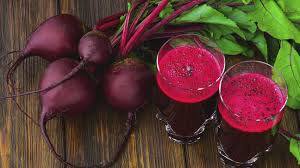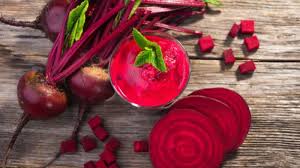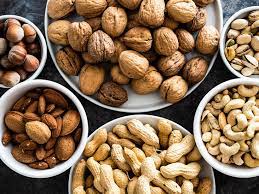Content of the Article
Beetroot has been used by alternative medicine in the treatment of diseases since ancient times. The benefits of beetroot are due to the rich vitamins and minerals it contains.
First of all, this vegetable contains a rich amount of protein, carbohydrates, dietary fibers, and fats. In addition, folate niacinIt contains pyridoxine, riboflavin, thiamine, vitamins A, C, E and K. Rich in sodium, beets are an incredible source of potassium. It contains beta carotene as well as calcium, copper, iron, manganese.
Now let's consider the benefits of beet in detail.
What are the benefits of beets?

Good for arthritis disease
- Although beets can inhibit the absorption of very high amounts of calcium, it can prevent arthritis caused by the buildup around joints and tissues.
- Beet juice, which contains a high amount of alkaline, helps to remove the deposits here.
Good for anemia
- Anemia is related to a low level of hemoglobin in the blood.
- Beetroot is very rich in phosphorus, magnesium, potassium, calcium, iodine, copper, oils and vitamins B1, B2, B6.
- It is also rich in niacin. Therefore, all these vitamins and minerals help to eliminate anemia.
Treatment of dementia
- Dementia is a type of forgetfulness disease that occurs with aging. As the disease progresses, the person forgets to do even normal routine things.
- Beetroot is thought to cure this disease. A study on this subject revealed that consumption of raw beet juice increases the oxygen rate in the brain.
Good for diabetes
- The alpha lipoic acid contained in beets is a kind of antioxidant that helps lower glucose levels and increases insulin sensitivity.
- This feature of beet helps to prevent stress-induced diabetes fluctuations.
- Studies related to this have revealed that this antioxidant helps to prevent conditions such as peripheral and autonomic neuropathy in people struggling with diabetes.
Reduces inflammation
- Beets contain choline. Choline, a very important nutrient, helps fight problems with muscle movement, memory, mental functions and insomnia.
- In addition, it is known to help protect the cell membrane structure, facilitate the communication of nerve impulses, aid in fat absorption and reduce inflammation.
Lowers blood pressure
- Beets can reduce or even prevent hypertension.
- This vegetable contains nitrates that can turn into nitric oxides. Nitric oxide is a vital component that helps relax and dilate blood vessels. Thanks to this feature, it increases blood flow and helps to lower blood pressure.
Increases stamina
- Beetroot, which is one of the foods consumed by athletes, helps to increase endurance.
- While exercising, raw beet juice increases the oxygen circulation in the muscles.
- In addition, it helps people struggling with respiratory diseases in this regard.
- It helps to increase the endurance of respiratory tract muscles.
It is effective against cancer
- The most important cause of cancer diseases is free radicals, but there are cases of cancer caused by other causes.
- Beetroot is known for its anticancer properties and increases the resistance of the body to avoid many types of cancer.
- The content of beetroot, anti-carcinogenic phytonutrients, can help fight cancer and even prevent cancer.
- Some scientific studies have shown that beetroot extract prevents multiple organ tumors.
- Beet-based drugs are being studied to treat breast, prostate, and pancreatic cancer.
It is good for heart diseases
- Beetroot is known for its ability to prevent heart diseases.
- The nitric oxide contained in beets has a relaxing and blood vessel dilating feature. These components are vital for blood and vascular health.
- Due to this feature, beetroot reduces the risk of heart diseases in general.
Good for arteriosclerosis
- The nitric oxide contained in beets significantly contributes to the dilation of blood vessels and acceleration of blood flow.
- This is an effective measure for arterial diseases such as atherosclerosis.
- Thus, beetroot plays an effective role in eliminating the factors that cause arteriosclerosis.
What are the harms of beets?
It is possible to say that beetroot does not have any harm or side effects in terms of health when consumed at normal levels like other foods. But consumption should not be overdone. Considering the health status of the person, it can be said that it can cause the following side effects;
- It can cause kidney problems by causing low calcium levels. However, this is not related to the beet itself, but to the person's body. Therefore, it is best to consume small amounts and consult a doctor or stop consumption when there is a side effect.
- There are different and conflicting opinions about whether beet consumption is healthy during pregnancy and lactation. For this, the best thing is to consume it in small amounts and without exaggeration, and if there is a known reaction of the body against beetroot, it should be consumed under the supervision of a doctor.
- If you are a kidney patient, you should definitely consume it in consultation with your doctor, some health experts argue that beetroot is not good for kidney patients.
References: 1











زبردست